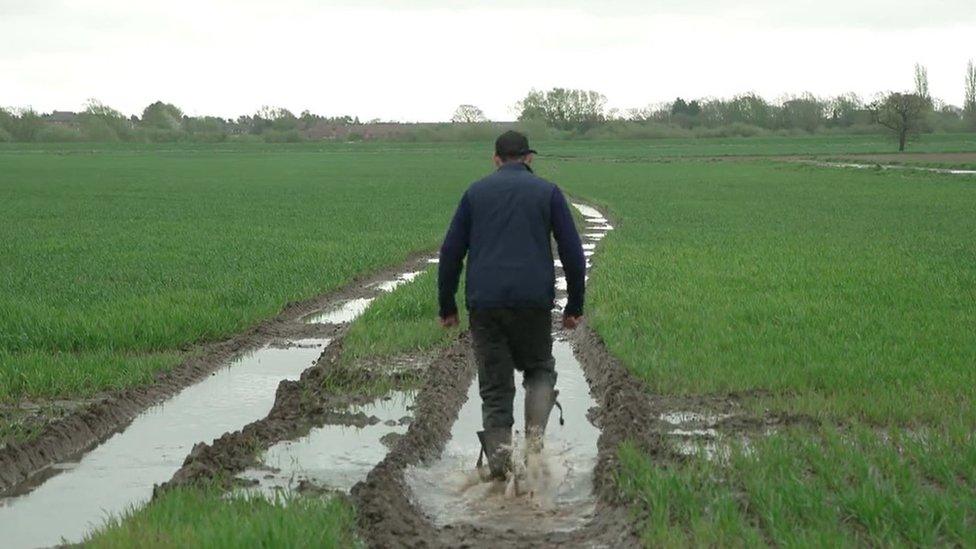Carrots imported from Israel after record rainfall

Kevin Green, a vegetable buyer at Hull's Priory Fruit Market, said he was increasingly sourcing produce from other countries
- Published
Months of record-breaking rainfall are having a significant impact on the UK's supply of fresh vegetables, according to the National Farmers' Union.
Some farmers said they had been unable to harvest vegetables from waterlogged fields, and unable to plant crops for the summer ahead.
Vegetable buyer Kevin Green said it had led to an unusually high quantity of produce being shipped and flown in to Hull's Priory Fruit Market from around the world, including carrots being imported from Israel.
The Met Office said rainfall in England over the past 18 months had been the highest since comparable data began in 1836.
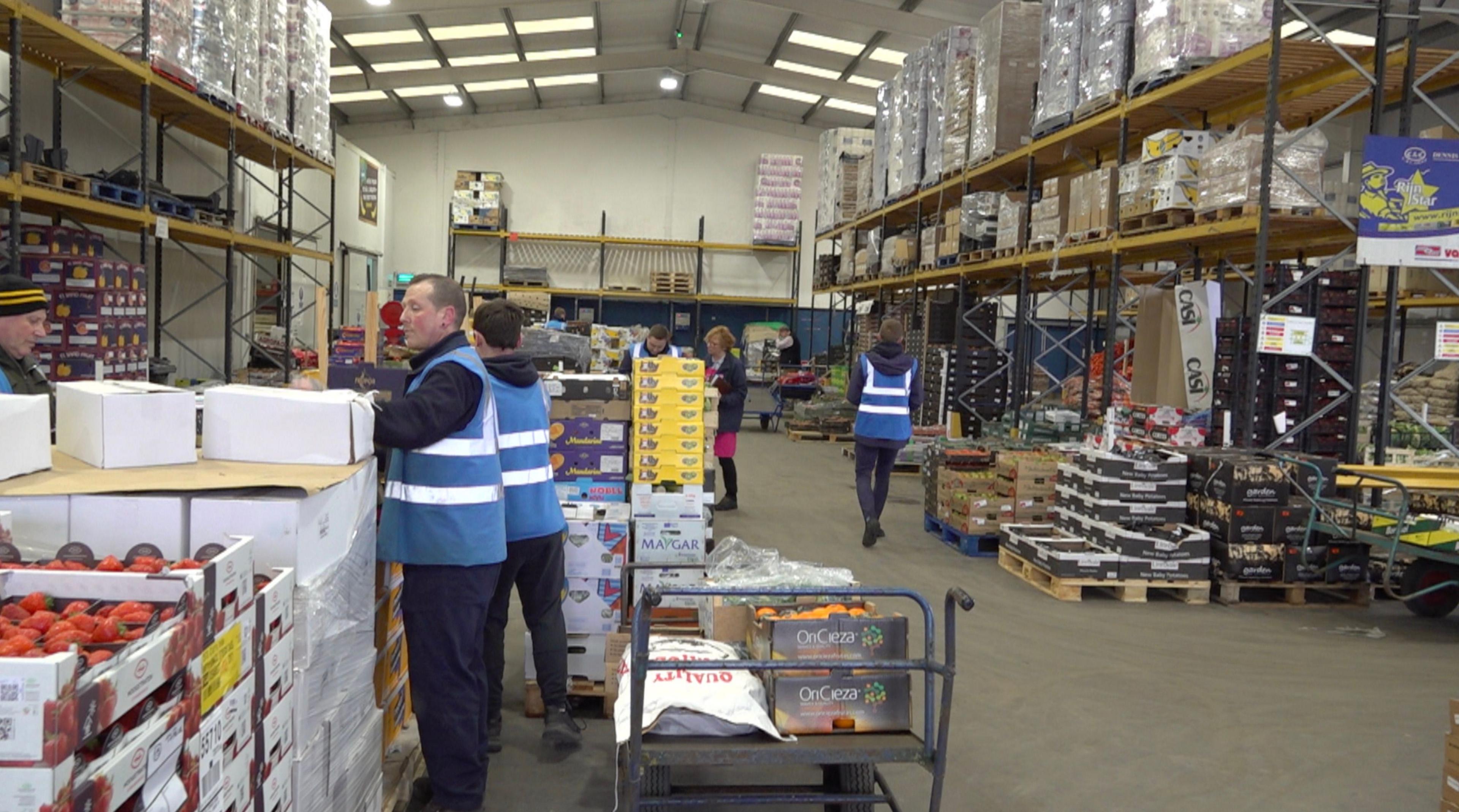
Carrots from Israel are among the produce being imported at the Dennis Butler fruit and vegetable warehouse near Hull
Mr Green, who buys fruit and vegetables for the Dennis Butler wholesale business near Hull, said: "It's been more testing and harder to source good quality carrots and parsnips because of all the water content in this produce.
"We've needed to go further afield. At the moment, we've got Israeli carrots here."
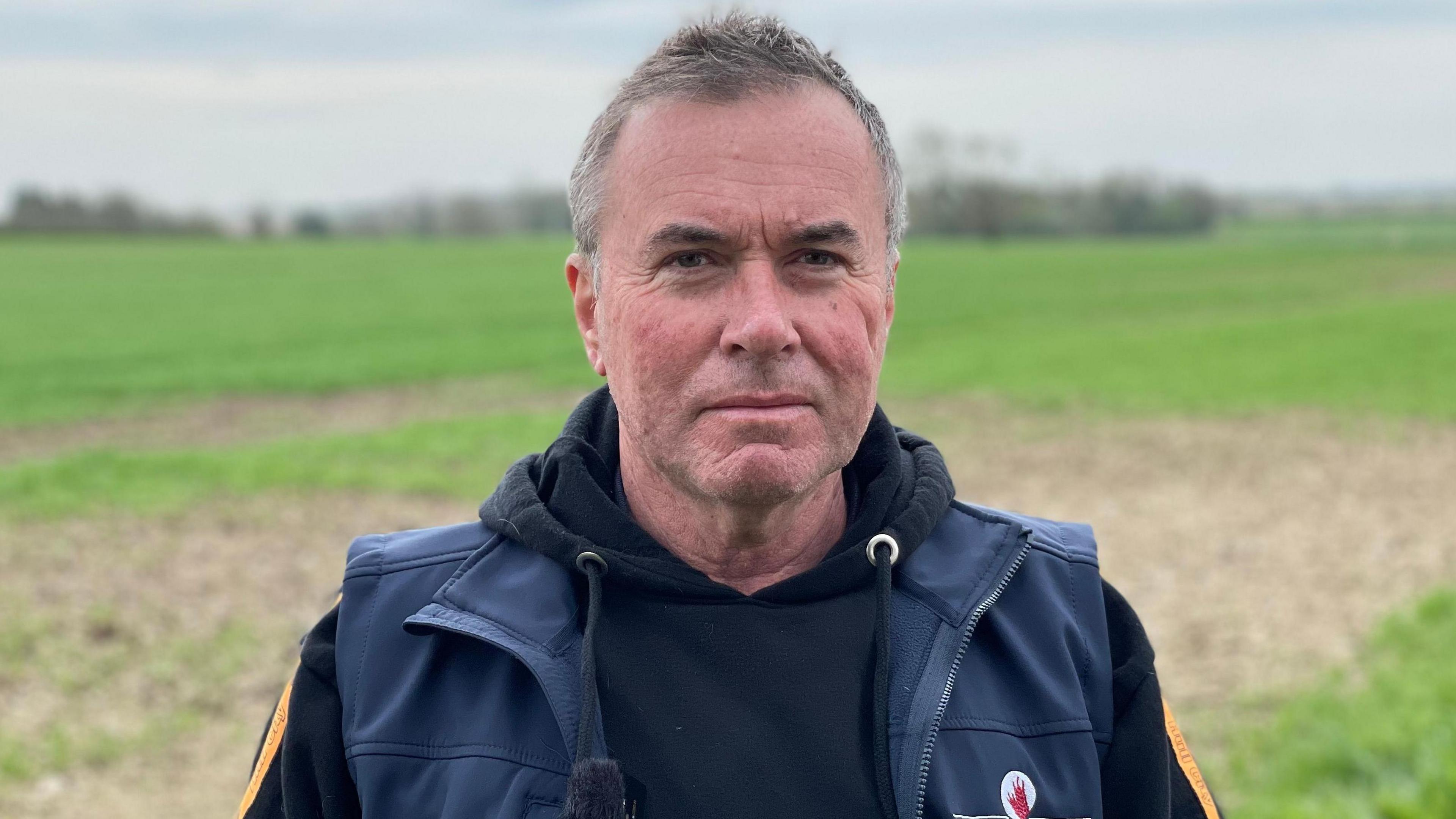
East Yorkshire farmer Richard Beachall said it had been a difficult six months
Food producer Richard Beachall said it had been difficult to sow his fields with wheat at his Yorkshire Wolds farm because of floodwater.
"It's not just the amount of rain we've had," he explained. "When it dries up you only need a couple of millimetres of rain and you are back to square one again."
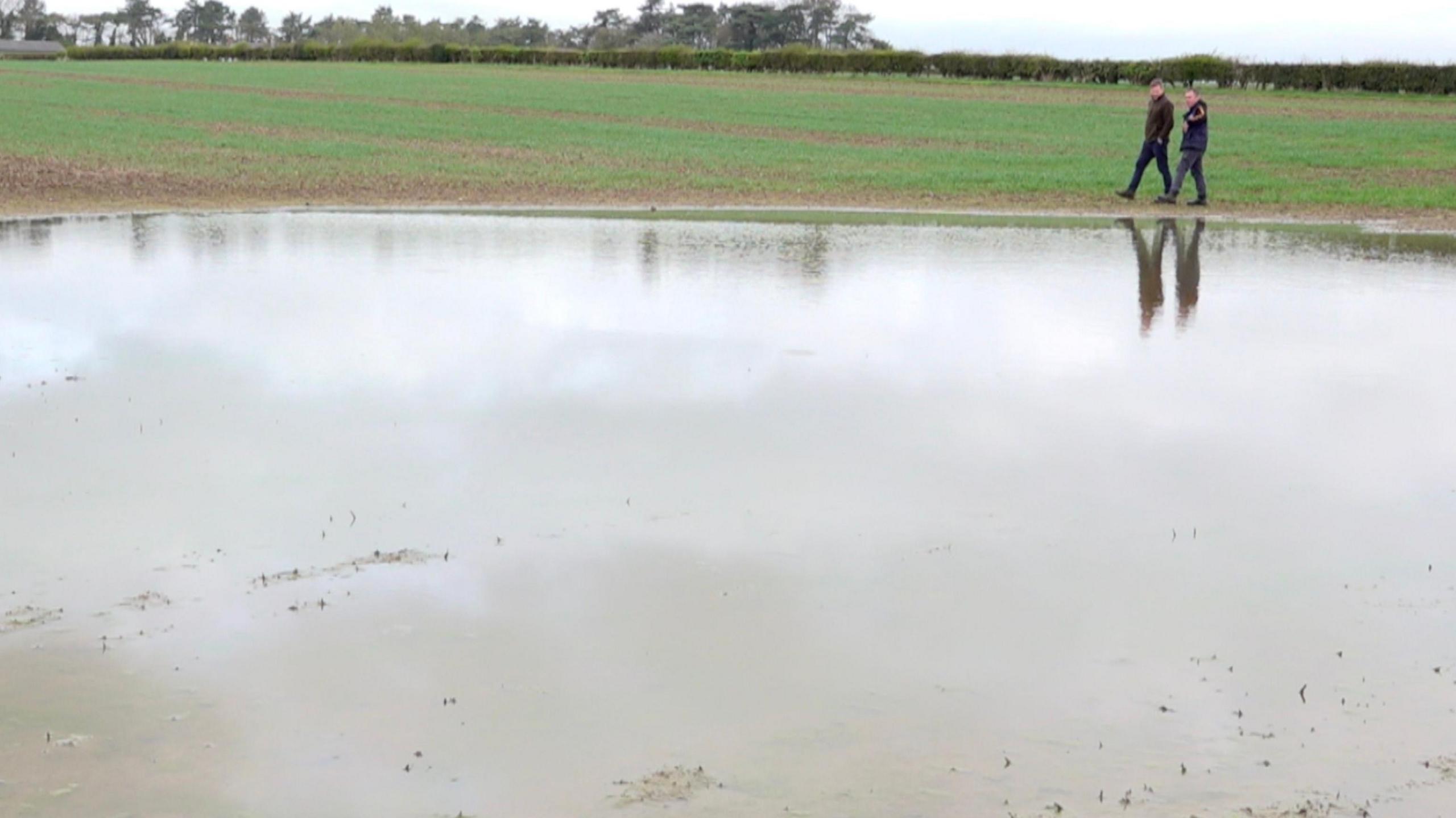
Much of the land on Mr Beachall's farm has been waterlogged for months
The problem for many farmers is two-fold. Vegetables are becoming water-logged and it has become difficult to drive heavy machinery for harvesting or planting onto the boggy fields.
Henry Moreton, chairman of the National Farmers' Union in Lincolnshire, said 150 acres (60 hectares) of his land had been flooded since early autumn, with some areas under as much as 5m (15ft) of water.
He estimated he had suffered six-figure losses, and seen his oilseed rape, winter wheat and barley crops decimated.
Mr Moreton said: "We cannot afford to flood farmland as we do. 60% of farmland in this country is on a flood plain.
"We can't afford to lose that, we're not putting bread in baskets like that."
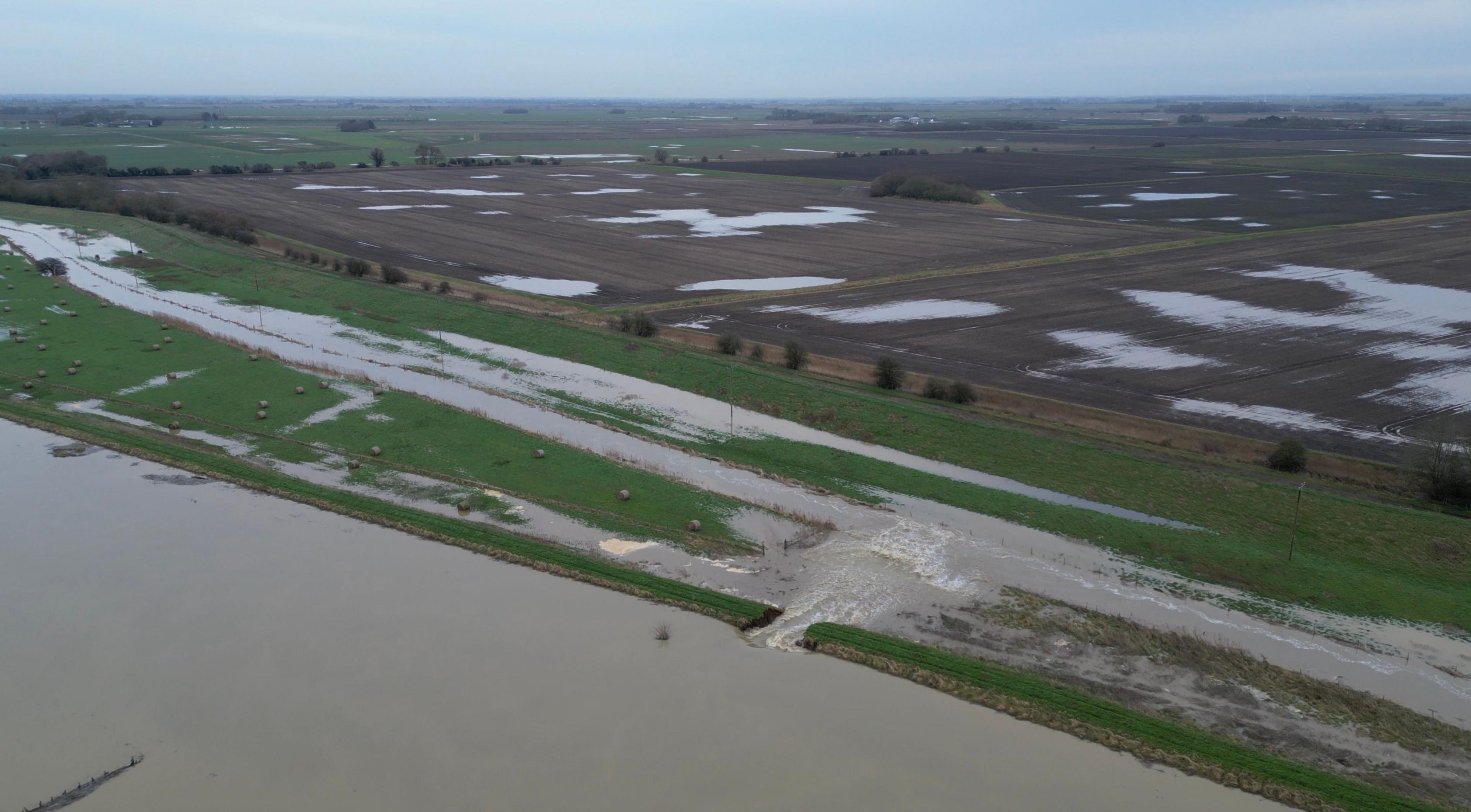
A bank collapsed on the River Wellend during flooding on farmland at Crowland in Lincolnshire
Time is now running out for many farmers to sow crops for the summer harvest, which needs to happen in the weeks ahead if they are to succeed.
For that to happen, water levels need to subside first, Mr Moreton added.
Related topics
- Published10 April 2024

- Published12 April 2024
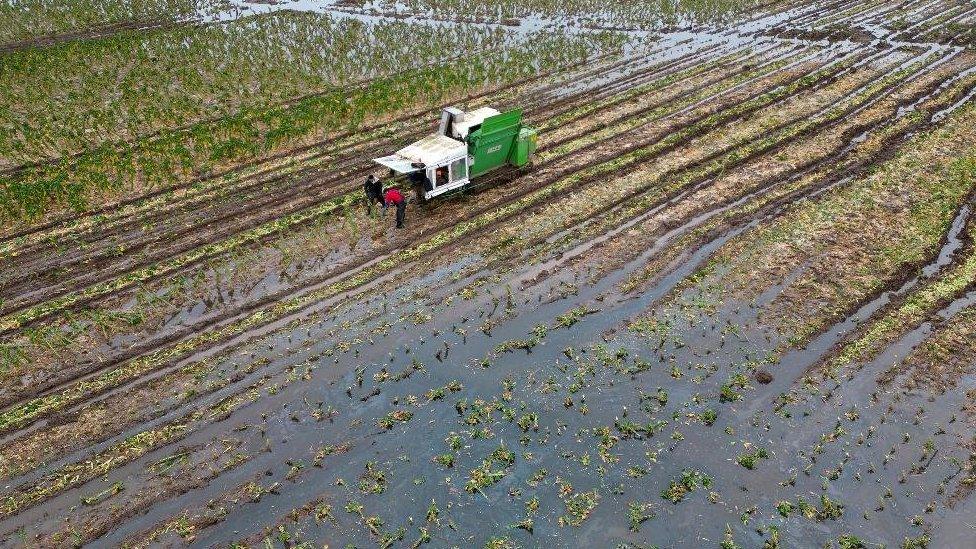
- Published10 April 2024
